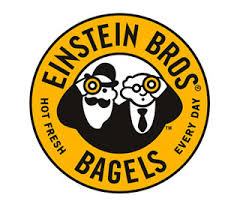 Could the semblance of all those salads that you eat for lunch everyday containing the nutritiously thin, vitamin-filled, bright green leafs be at the root of why you aren't able to lose the extra pounds you've been struggling to get rid of for weeks? The same salads that leave you craving a chocolate bar or bag of chips right after eating lunch (no matter how full you are), the same salads that you replaced your usual turkey and cheese sandwich for, the same salads that you've been eating in order to lose the extra weight you can't seem to shed...
Could the semblance of all those salads that you eat for lunch everyday containing the nutritiously thin, vitamin-filled, bright green leafs be at the root of why you aren't able to lose the extra pounds you've been struggling to get rid of for weeks? The same salads that leave you craving a chocolate bar or bag of chips right after eating lunch (no matter how full you are), the same salads that you replaced your usual turkey and cheese sandwich for, the same salads that you've been eating in order to lose the extra weight you can't seem to shed...
Einstein's isn't the only company that sells salads that can be compared to the nutritional contents of hamburgers. McDonald's Premium Southwest salad with crispy chicken contains 430 calories, Burger King's Tender Crisp Garden Salad contains 450 calories, and Wendy's Mandarin Grilled Chicken Salad contains 540 calories.
Not only do the salads contain a prolific amount of calories, but many also have a large amount of fat, such as McDonald's Grilled Chicken Salad with Newman's Own Caesar Dressing containing 56 grams of fat or Wendy's Mandarin Chicken Salad containing 36 grams of fat.
So my question is: Why are companies loading these products with fat and calories when they know most consumers are buying them because they consider the products to be a healthy alternative? It really isn't that difficult to make an appetizing salad that contains minimal calories. There are tons of ingredients, such as sauteed mushrooms or heart-healthy nuts, that could replace unneeded, artery clogging toppings like bacon. Also, there are tons of bright, colorful low-cal toppings, such as tomatoes, beets, radishes, and carrots, that can can make a salad more aesthetically appealing than any other competing cuisine.



Personally I think companies would profit more by making there heavy yet intended to be light products healthier. Far more health advocates like me might actually consider going to a fast food restaurant for convenience and purchasing a salad once in awhile. Most of us now rarely step foot in such a place. Instead of deceiving their customers, fast food restaurants should look into healthier options and make the salads they sell actually nutritiously beneficial.








No comments:
Post a Comment